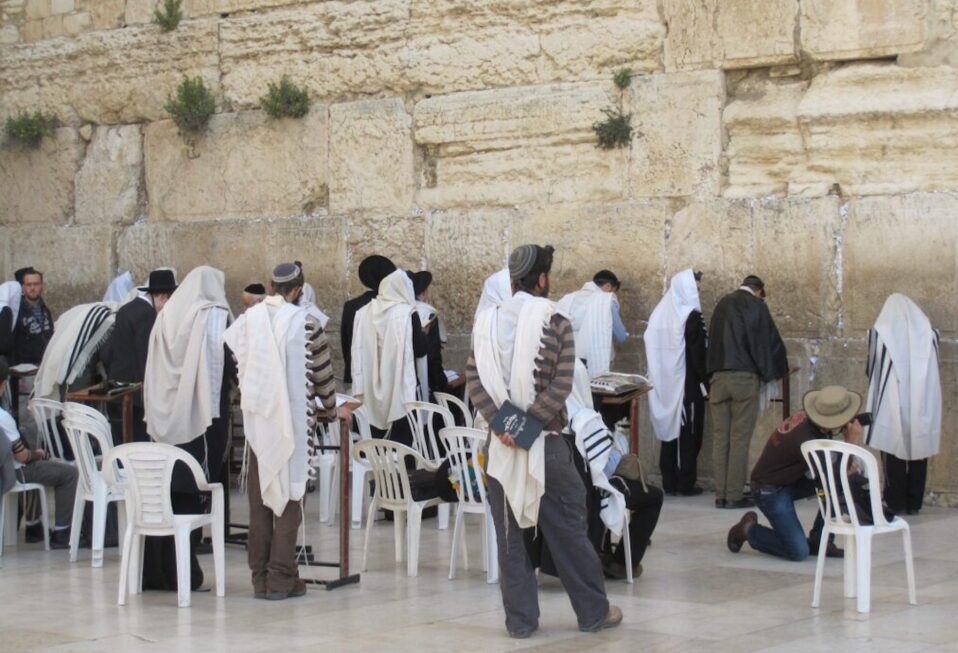Judaism today divides along two lines primarily: the geographic origin of the Jewish community, and the Jewish community’s encounter with modernity and the modern world. Western Christians often struggle to understand the characteristics of modern Judaism because Christian communities in the West divide along theological and doctrinal lines.
This is not the case with Jewish communities. The differences between the Jewish communities do not come from doctrinal differences, but rather, from differences caused by their geographic locals and distances from other Jewish communities, and then, with the rise of the modern world, how Jewish communities responded and reacted to modernity.
The primary geographic divisions of the Jewish community are Ashkenazi and Sephardic. Synagogue communities divide into either of these two groups. The Ashkenazi come from Europe, primarily eastern Europe, and Russia. Sephardic Jews historically came from Spain, but today, Sephardic Jews refer to Jewish communities which came from Spain as well as those communities which came from North Africa and Middle Eastern countries, like Iraq, Syria, and Yemen. These Jewish communities are also referred to as Mizrahi. Ethiopian Jews are identified as Sephardic, but their synagogue liturgy has variations.
The Spanish Inquisition caused many Jews to flee from Spain. Some went to the historical land of Israel; others migrated to Thessaloniki. The principal differences between Ashkenazi and Sephardic synagogues pertains to liturgical worship, which developed due to the geographic locations of the Jewish communities.
When we speak about various Jewish communities’ response to modernity, we refer to divisions of Orthodox, Conservative, and Reformed. Inside the Orthodox community one finds modern as well as Ultra-Orthodox communities. For centuries, Jewish communities adhered to orthodox Judaism, which continued developing the traditions of rabbinic Judaism. Learning of rabbinic works took place within yeshivas. The differences within the communities came from their geographic locations and the rabbis they formed around, but commonalities in liturgy and the library of rabbinic works, studied in a similar manner ensured a consistency of worldview.
The Enlightenment of the eighteenth and nineteenth centuries impacted the Jewish communities, particularly the Ashkenazi communities of Europe. The application of reason and critical thinking to religion led to the advent of modern biblical studies and the application of modern, critical methods of studying the Bible. Jewish communities in Europe and North America were influenced by these trends. So too, Jewish communities sought to settle a dual identity, on the one hand they were Jews, but on the other, the nationalism which swept Europe in the nineteenth century impacted Jewish communities as well.
Thus, to exist within the modern world, one had to navigate being Jewish and being German or French or American. The combination of these forces led to the growth of the Conservative and Reformed streams of Judaism, which sought to reimagine Judaism for a modern world. Instead of adhering to the traditions of the past, which often isolated Jews from the communities around them, Jews sought a form of Judaism which could incorporate them into the modern world and nations in which they lived.
The Ultra-Orthodox community went the other way. They viewed modernism as a threat, and therefore, to keep the modern world out, they froze traditions and dress from the past to insulate them from the incursion of modernism.
Marc Turnage is President/CEO of Biblical Expeditions. He is an authority on ancient Judaism and Christian origins. He has published widely for both academic and popular audiences. His most recent book, Windows into the Bible, was named by Outreach Magazine as one of its top 100 Christian living resources. Marc is a widely sought-after speaker and a gifted teacher. He has been guiding groups to the lands of the Bible—Israel, Jordan, Egypt, Turkey, Greece, and Italy—for over twenty years.
Website: WITBUniversity.com
Facebook: @witbuniversity
Podcast: Windows into the Bible Podcast




Post a comment